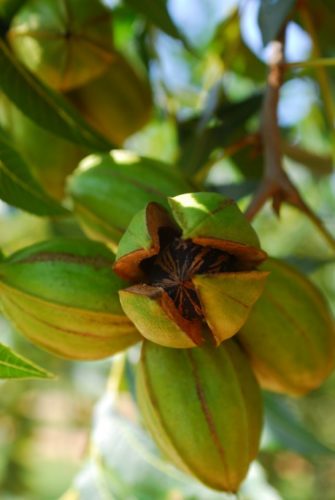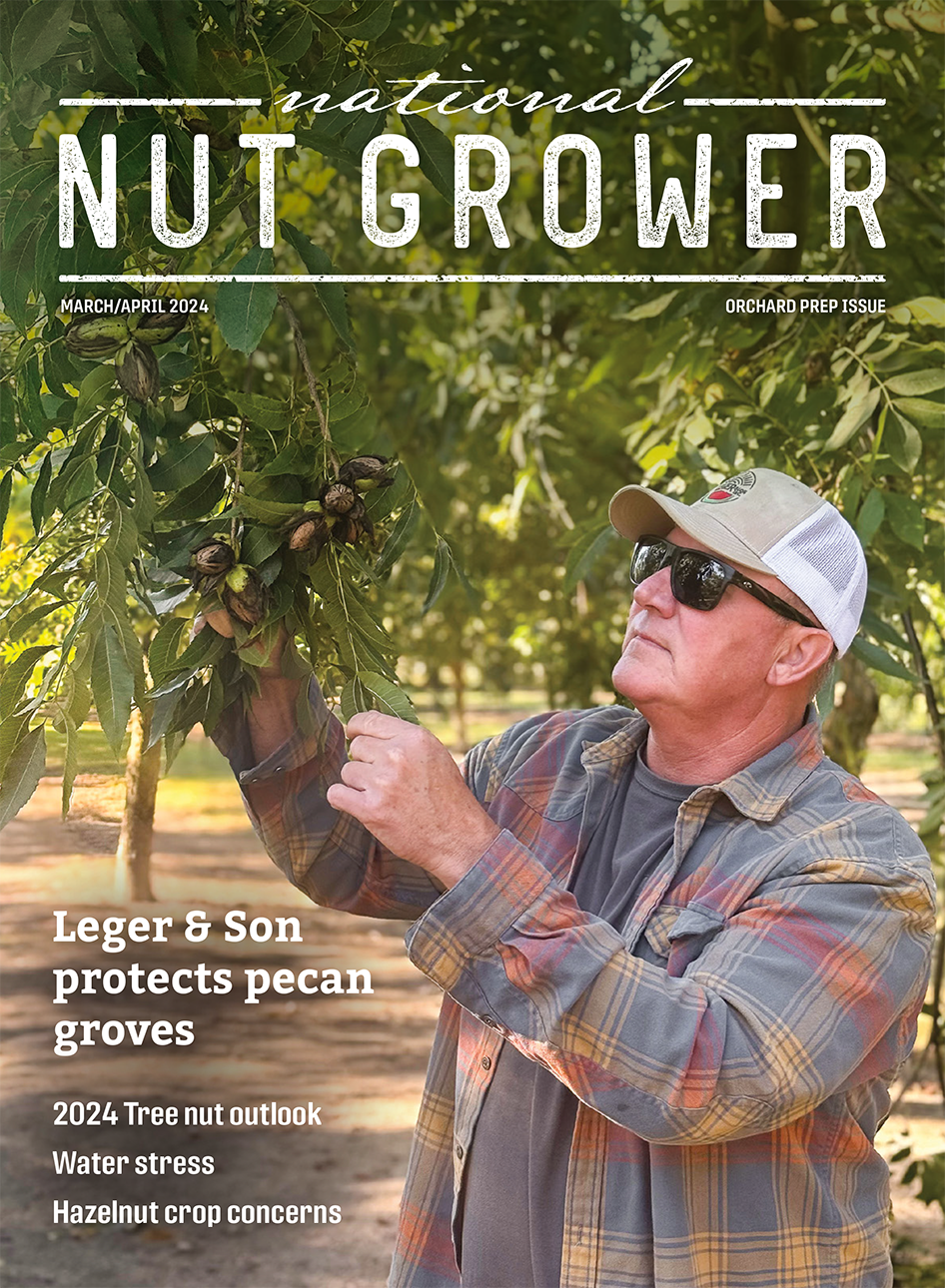The never-ending array of challenges each Georgia pecan crop presents continues with the 2021 pecan crop. From the beginning, this year’s crop has appeared late and short. The intermittently cold spring pushed bud break back and greatly slowed the progression of foliage expansion, and thus flowering and crop development by at least 10 days. This may have led to some pollination problems which limited crop set.
Following crop set in early summer, I noticed that throughout the state, young orchards (30 years and under) appeared to have a pretty good crop, while most older orchards appeared very light to almost blank. Every crop gets shorter as the season progresses, but when the season starts out with a limited crop as we saw this year, that crop gets shorter quickly. From my perspective, the 2021 crop is setting up to be the shortest crop Georgia has seen since perhaps 2006, in which we produced 42 million lbs. as a state.
Frequent rainfall throughout the growing season led to scab issues, and we lost some nuts to scab, but considering the scab pressure we saw this year was at least as bad, if not worse, than what we saw in 2003 and 2013, growers did an excellent job of minimizing the damage from scab. A bigger issue for the 2021 season that came along with the frequent rainfall was the extended periods of cloudy weather. Basically, solar radiation was reduced throughout the growing season.
However, the event which did the greatest damage across the state appears to have occurred over a 7-day period between Sept. 16 – Sept. 22. I mined weather data from various University of Georgia weather stations across the state and found that at all locations examined during this 7-day period, solar radiation was half of what it should have been during that time. This occurred at a critical juncture in nut development.
Kernel filling normally takes place from mid-August to mid-September for mid-season maturity varieties. Because the crop was around 10 days late, this had the problem event occurring right during the heart of kernel-fill, which is a very high energy demand period in the development of the crop. Pecan trees, like all plants, require adequate sunlight for photosynthesis to drive these processes. When this key resource is cut in half at such a critical time, the trees simply cannot fill the crop as they should. As a result, we are seeing a lot of light nuts on mid-season varieties blowing out of the harvester or in the cleaning plant. This has reduced the volume of the crop greatly, even from orchards that appeared to have a good crop.
Early maturity varieties like Pawnee and Elliott escaped this problem because they had largely finished filling before the extended cloudy weather of that 7-day period in mid-September. The mid-season varieties seem to have suffered most on trees that had a heavy crop load.
Normally as we approach mid-November, most of our varieties are ready to harvest, and we see a large volume of nuts already harvested. This year, however, we have seen relatively little crop volume come in. Many growers are saying they are ending up with about 30% of a normal crop from harvested orchards of mid-season varieties, which make up a large percentage of Georgia’s orchards. Some growers plan to delay harvest until a frost or freeze helps the remaining nuts open, so they can minimize harvest costs by only having to harvest over the orchard one time.
Back in July, the Texas pecan estimate had Georgia at 85 million lbs. This appeared possible to me at that time, but my number throughout the season was more like 70-75 million lbs. We never really know until the crop is in, but given how things have played out, I now think it unlikely that we make more than 60 million lbs., and we may see that number fall even further, below 50 million lbs. for the first time in 15 years.
– Lenny Wells is a professor of horticulture and Extension Horticulture Specialist for pecans at the University of Georgia. His research and Extension programs focus on practical cultural management strategies that help to enhance the economic and environmental sustainability of pecan production in Georgia.








